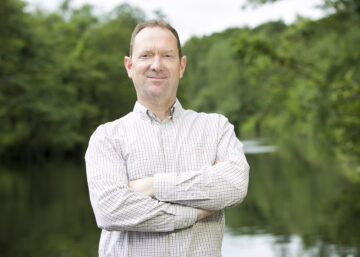BSRIA has responded to a recent speech given by Greg Clark, Secretary of State for Business, Energy and Industrial Strategy to the Institute of Energy Economics highlighting how the UK can cut the cost of energy; cut how much carbon the country generates; drive economic growth and improve the quality of life.
Mr Clark said that “he is looking forward to a low carbon economy and putting Britain on a path to a prosperous low carbon future in which we could benefit industrially as well as economically from the changes”.
He added that large-scale, low cost batteries started outbidding some more conventional generation in the “capacity auction”. And that the list of innovations goes on across the energy sector. Smart technologies to help people save money in their homes are key.
Mr Clark said that this means “taking the opportunity to enhance our energy security, particularly in our electricity market, through a smarter, much more responsive system”.
And “continuing to reduce our carbon emissions and to make sure that this transformation benefits our wider economy”.
One example of that is the work government has been doing is on battery technology and ultra-low emission vehicles. It has launched the Faraday challenge – designed to ensure that the UK is the place in the world where new battery technology is commercialised.
Henry Lawson, Senior Market Research Consultant, BSRIA, said: “BSRIA has been reporting and analysing the related revolutions of sustainable energy, the smart grid and energy storage – including use of batteries – for quite a few years now, both in the UK and globally. It is clear that cheap, efficient, safe energy storage is one of the crucial cogs in the engine that is driving the green energy revolution forward. But we do need to see this backed up by activity which has to be focused towards practical achievable objectives.
Battery storage is advancing by leaps and bounds and there are now units available that are affordable and capable of being installed in a British house. There is already a substantial consumer market for this in Germany, but there it is underpinned by the fact that the prices consumers pay for grid power tend to be significantly higher. The danger is that in the UK home energy storage may be seen as a luxury item, or limited to what one could term environmental enthusiasts.
Moving forward – thought must be given as to what could incentivise consumers to make better use of energy storage and demand shifting. The implementation of smart meters across the UK should help, as should the growth in smart homes and smart appliances, but there is also a lot of work that needs to be done to assure consumers that the systems they install in their home are safe from hacking, and that their personal data is safe.
There is also growing recognition of the potential for deploying battery storage in non-residential buildings. One of the barriers here has been in justifying the ‘return on investment’ when the payback period for batteries will typically be over several years, which may be longer than a typical business might be used to accepting. There is, however, scope for innovative financing schemes which can help to bridge this gap and some suppliers are, wisely, encouraging this.
For both residential and non-residential buildings, battery storage can make on-site generation of electricity through solar or wind power more attractive as surplus energy can be stored for use when it is most needed.
Recycling of batteries, some of which use scarce or potentially harmful materials is also an important consideration, and it is encouraging to see schemes emerging to address this.
The kaleidoscopic activity of designing, building and commissioning a building needs to become more connected so as to ensure that the most appropriate smart solutions are selected. There should also be a degree of flexibility given the rapid advances that can render what is ‘smart’ today, outdated tomorrow.”
BSRIA was delighted to stage its Smart Network Launch – inaugural meeting and workshop – on the morning of Friday 6th October at Nomura’s offices in London. The next network event will be held on Thursday 18th January 2018 in Bristol. BSRIA also publishes many smart white papers which include: How will Wearables revolutionise HVAC products & services for building Wellbeing and Megatrends – Urbanisation.



